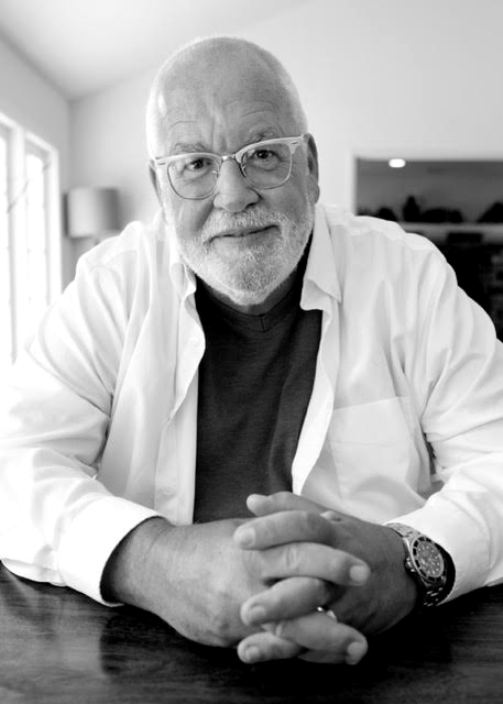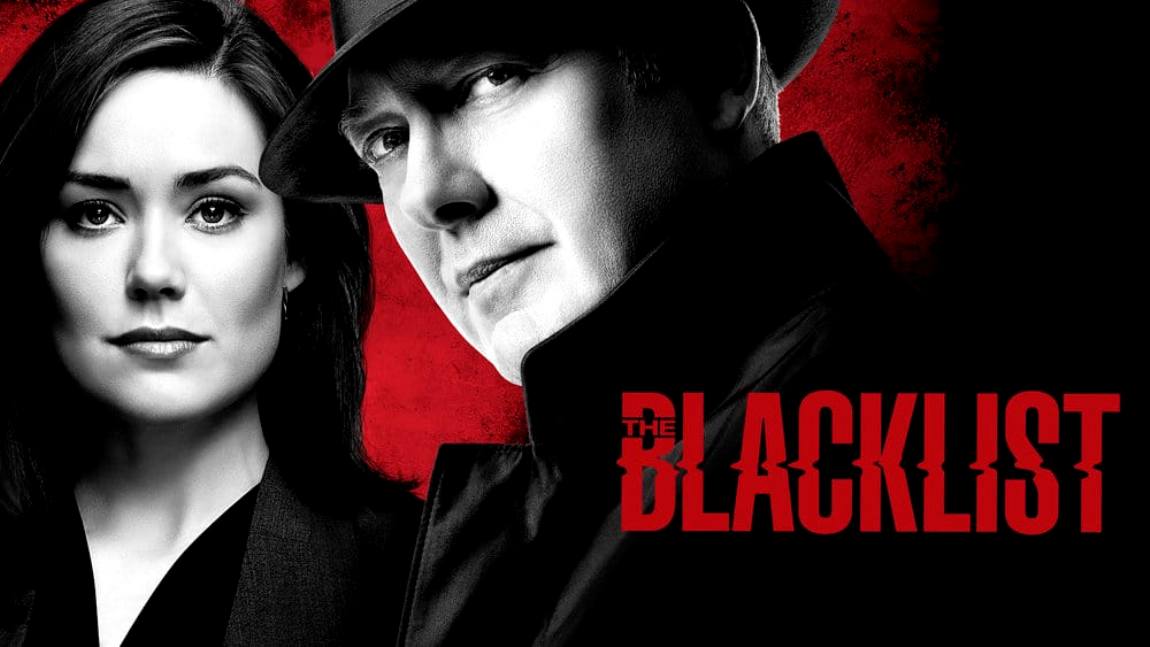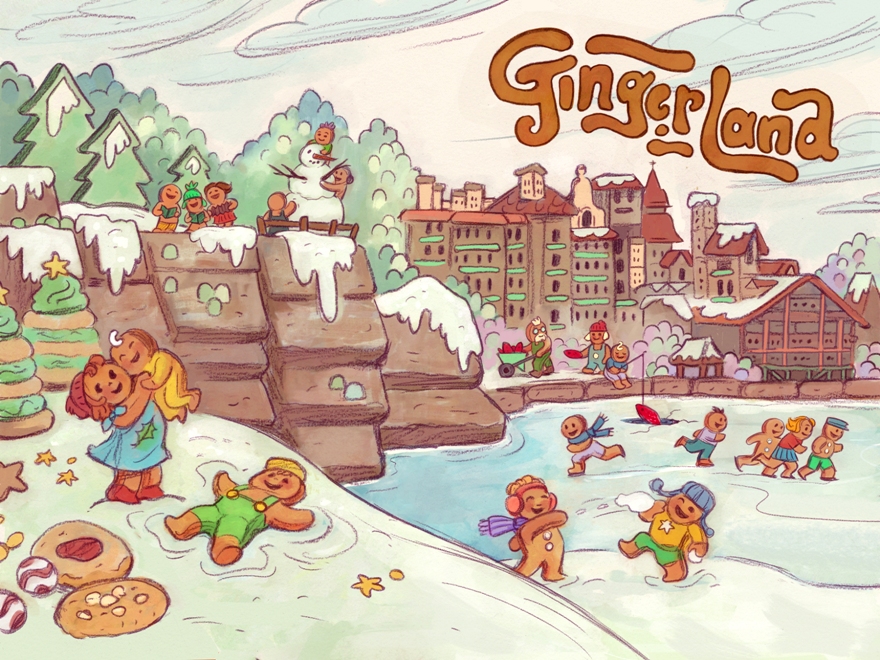
On this month's Special Page:
Our Media Director, Trish Wilson, captured an exclusive interview the television and movie producer Daniel Knauf
IN THE "SPECIAL PAGE" ARCHIVES:
Tane McClure
Nicholas Tana
Elizabeth Massie
Jonathan Maberry
Stephanie Charles

Daniel Knauf, sometimes credited under the pseudonyms Wilfred Schmidt and Chris Neal, is an American television screenwriter and producer, as well as comic book writer. He is best known as the writer and creator of the HBO dark fantasy series "Carnivàle." He wasExecutive Producer and writer for seasons 2 through 4 of the TV series "The Blacklist." He has also worked on the Iron Man Comics with his son Charlie.



An interview with Daniel Knauf
by Trish Wilson
TRISH WILSON: You used to work in the insurance business. How did you go from that to being a full-time writer?
DANIEL KNAUF: I married young and set aside my creative endeavors as “impractical” to focus on supporting my spouse and family. What I didn’t understand is that making art is not a career choice, but hard-baked into the artist’s very being.
By the time I reached my mid-20s, I was suffering from chronic clinical depression.
Suffice it to say, at a certain point I had a breakdown, my carefully constructed “normie” persona collapsed and I admitted myself for inpatient treatment at a psychiatric hospital. My very first day as an inpatient, I began writing. I haven’t stopped since.
In the two decades following my hospitalization, I carved out increasing time from my insurance career to focus on screenwriting.
My objective was solely to master the craft. To that end, I read dozens of how-to books, subscribed to screenwriting magazines and attended workshops, seminars and extension classes. I spent every spare minute either writing screenplays or learning how to write better screenplays.
Only after having written seven feature-length scripts did I decide I was ready to dip my toe into the market.
I created a proprietary website and blog on which I posted the first acts of my screenplays and recounted my misadventures in the screen trade (later collected in my book, Stupid Writer Tricks). I also signed with a manager and entertainment lawyer.
I was then contacted by Robert Keyghobad, a producer for Scott Winant, an Emmy-winning television director, who inquired about a pilot I had posted on my website called CARNIVÁLE. We developed it and it was eventually greenlit to series by HBO.
Then I sold my insurance brokerage to my brother, Paul.
TRISH WILSON: What writers and other media have influenced you the most?
DANIEL KNAUF: Richard Matheson, Clive Barker, Ernest Hemingway, Ursula K. LeGuin, Vermeer, Charles Bukowski, Dostoevsky, Shirley Jackson, Caravaggio, Lou Reed, Ray Bradbury, David Lynch, Harlan Ellison, Henri Rousseau, Lenny Bruce, Shane Black, Raold Dahl, Andrew Wyeth, George Carlin, Harry Nilsson, Van Gogh, H. P. Lovecraft, Dorothea Lange, Ezio Bosso, The Firesign Theater, Richard Avedon, Gertrude Stein, Frank Frazetta, Monty Python, Bob Dylan, William Goldman, Johnny Gruelle, Andy Warhol, Edgar Allen Poe, Raymond Chandler, Robert E. Howard, John D. MacDonald and Leonardo Da Vinci.
TRISH WILSON: What was it like collaborating with your son Charlie on the Iron Man comics?
DANIEL KNAUF: It was fun. A total bonding experience. We’d break the stories together. Charlie would write the first draft solo, then we would sit side-by-side at the computer while I did my rewrite, explaining at each step what and why I was making changes.
It was like an intense graduate seminar in which my sole student was my son.
TRISH WILSON: "Carnivàle" was cancelled before you had a chance to finish it. Why was the show cancelled? What were your plans for the remaining seasons of "Carnivàle"?
DANIEL KNAUF: "Carnivàle" is a trilogy about the death of magic. The first book covers the years 1934 – 1935, the second, 1939 – 1940 and the third, 1944 – 1945. Each book was presented as two seasons of 12 episodes, for a projected six year run of 72 episodes.
The reason it was cancelled was due to ratings, though high by today’s standards, did not meet the unrealistic benchmarks HBO had anticipated. I knew we were doomed the first time I was informed that they were expecting "Sopranos" numbers. This was not likely, as "The Sopranos" was a mainstream drama that was written for a broad audience and "Carnivàle" was a dark genre series.
The premise of "Carnivàle" is that God and Satan engaged in a war that shook the foundations of the cosmos. They forged a truce in which the war would be continued by proxy. God created the game board, Earth, and the chess pieces, a species of sentient apes gifted with free will.
Each side was granted one male Avatar per generation to continue the war between darkness and light. These Avatars are demigods, gifted with supernatural powers. Some, like Jesus and Hitler, were facile and effective. Most were incompetent, insane or otherwise consigned to obscurity.
Through the ages, the sentient beasts became increasingly inventive, manipulating their environment and building empires. But as recounted in the story of the Tower of Babel, inevitably, their own propensities toward corruption, greed, violence and ignorance would result in a catastrophic conflict. All the wisdom they had accrued would be obliterated and civilization would have to start over.
Until an unprecedented and wholly unexpected period of stability occurred over the five centuries following the Renaissance, culminating in the creation of the first nuclear bomb. God recognized that humans had outgrown their function as ignorant vassals and were now capable of harnessing the atom—a power heretofore reserved for Himself.
The chess pieces had come to life and were making their own moves!
Consequently, humans were no longer useful as proxies. At that point, God tossed humankind the car keys and said, “You’re on your own, kids.” Magic was no longer necessary; it had been usurped by science, and the last Avatars were consumed by the fires of the first false sun detonated over Alamogordo
The first book of the trilogy covers Ben Hawkin’s coming of age as an Avatar of light, his first direct conflict with Brother Justin and the reveal of Sofie as the first female Avatar, the progeny of Justin “The Usher.”
The second book reveals that Sofie has given birth to a son. Is he the offspring of Brother Justin or Ben Hawkins? Meanwhile, as Justin physically disintegrates, Ben slowly recovers, traveling to Europe and rebuilding a troupe of gifted humans to assist him in his mission to halt the impending nuclear detonation.
The third book reveals that Sofie’s son, now 10 years old, was fathered by Ben—he is the progeny of dark and light Avatars. As such, he is the key to the fulfillment of mankind’s growth and destiny. In a tower over White Sands, magic merges with science, triggering the nuclear explosion that annihilates the former and enshrines the latter.
TRISH WILSON: How do you think Carnivàle would do today with streaming services?
DANIEL KNAUF: If it premiered today, I think it would be much more popular than it was 20 years ago.
At that time, most shows were episodic. Cops, lawyers and doctors. Then here was this complex, metaphysical, serialized dark fantasy featuring circus freaks in the 1930s presented using novelistic techniques such as long-running parallel storylines. People didn’t know what to make of it back then. They do, now.
It’s on Max and I presume people are still watching it after 20 years, so that’s pretty cool.
TRISH WILSON: How did you get to work on "The Blacklist?" How much creative control did you have?
DANIEL KNAUF: I had worked with John Eisendrath on a show called "My Own Worst Enemy" and he actively recruited me for Season 2 after my stint showrunning "Dracula" for NBC. During Seasons 2 and 3, I exercised a great deal of creative control for the first two years of my employment on the show. I was left mostly to my own devices to write my own episodes plus performing a ton of uncredited work on others.
Season 4 was very difficult. I suffered a fall in Rome while on Christmas vacation—ten feet off a sheer wall onto stone steps—and was hospitalized with a shattered sternum and broken ribs. It was a miracle I wasn’t killed or permanently maimed. Resentment festered over my protracted absence and I became targeted for a lot of passive aggression. I decided to move on.
TRISH WILSON: What behind-the-scenes stuff can you talk about re: "The Blacklist" that the general public doesn't know about? Any fun cast and crew stories?
DANIEL KNAUF: The show was written in Los Angeles and shot in New York. While I was there, writers weren’t active on the set, so we had little or no daily contact with the cast.
The sole exception was James Spader, who very conscientiously served in his role as an executive producer. He would perform page-by-page review of every script with the writers.
James had mad story-sense. His notes were masterful. Working with him was a pleasure and a privilege.
TRISH WILSON: The WGA and SAG/AFTRA were on strike, ending positively for them in September of 2023. What are your thoughts on the strike, whatever you're allowed to talk about?
DANIEL KNAUF: I was confident they could resolve the existential issues that have evolved for writers over the last 5 years. I know a few people on the negotiating committee and they had my unmitigated faith and support.
Everyone in town wanted this to end, but the AMPTP were playing games when they could easily have capitulated and continued to make their obscene revenues.
Once upon a time, Hollywood was run by showmen. Now it’s dominated by Silicon Valley billionaires. These guys—Bezos, Reed Hastings, Tim Cook—demonstrably possess the cold hearts of engineers. They disregard the human element and routinely exploit their workers. They loathe unions.
I sincerely believe their goal was to break the WGA.
Quite simply, they were not bargaining in good faith. I was disgusted that no one in the political sphere had made an effort to arbitrate this shit-show when so many of their constituents were suffering.
TRISH WILSON: "Gingerland" is your new Christmas story. What can you tell me about it, and how may readers find it?
DANIEL KNAUF: "Gingerland"is my favorite project yet. It’s a Christmas fantasy featuring a trio of Gingerbread siblings who fall out of Gingerland—a perfect winter wonderland where Christmas is perpetually around the corner—and plunge into the real world.
There they discover Gingerland is in fact a holiday diorama under glass in the lobby of a grand Adirondack hotel. In their efforts to return home, they encounter a number of characters, some of whom help them and others who are really nasty pieces of work.
It's written in the tradition of Raold Dahl and William Goldman’s "The Princess Bride". The prose is adult-level, the characters are complex and the story takes dark turns, executting some deep thematic dives—sort of a grown-up book disguised as a children’s story.
Nevertheless, Gingerland can be read to kids and they’ll comprehend and enjoy it. Plus it’s wonderfully illustrated by Zelda Devon.
My motivation to write Gingerland was because the world seems way overdue for an original Christmas story. Granted, it’s a patch of soil that’s already been tilled by some great writers, so it presented a big challenge.
It took me years to come up with something fresh.
But after I finished, I realized that my little Christmas tale is much more than meets the eye. This one has a serious theme that resonates and is very much of its time.
Finally, it occurred to me that I was writing about the internet, how living in a false, curated world encased in glass not only inhibits spiritual development, but can blind you to dangers outside the bubble.
As messy as it is, as unpleasant its inhabitants can be, the real world is the only place where growth is possible.
Currently, "Gingerland" is exclusively available on my Substack.
A Free Subscription grants you access to the first 14 chapters of Part 1 plus my own related blog posts. A Paid Subscription gives you access to the entire book as well as a bunch of other goodies.
Once I reach 700 Paid Annual Subscriptions, I’ll print an heirloom-quality, limited signed and numbered edition to be distributed to my Paid Subscribers and supporters. Plus their names will be listed in the Acknowledgements.
I’m very proud of Gingerland, and if any of your readers are curious to see a Christmas story written by the same lunatic who created "Carnivàle", I’d urge them to subscribe. They won’t be disappointed.
TRISH WILSON: Did you have mentors early in your career who helped you? If you did, who were they? What kind of help did they give you? I've noticed some writers have had mentors and they've maintained professional relationships and even friendships with them.
DANIEL KNAUF: In pursuit of my bizarre skill-set I was fortunate enough to acquire two key professional mentors, Jan Fischer and Cliff Osmond. Both have passed on, but we became close friends and collaborators while they were alive. I miss them every day.
TRISH WILSON: What advice would you give to first-time screen writers? What are the most common mistakes they make?
DANIEL KNAUF: Don’t be motivated by money or fame. Focus on your craft. The main thing is to be as good as you can possibly be at your art. That’s where satisfaction lives. Pursue it with passion. Even if you don’t make a nickel, you’ll die much richer than the legions of cowards too scared to chase a dream.
The biggest mistake you can make is giving up. If you work hard every day, your success is not only probable, but inevitable.
TRISH WILSON: Please leave your web site, Substack, and social media links. Also, what are your plans for the future? What future project may readers look forward to?
DANIEL KNAUF information:
Website: https://knauf.tv
Substack: https://gingerland.substack.com
Facebook: https://www.facebook.com/daniel.knauf
Stupid Writer Tricks: https://a.co/d/5RJlcqL